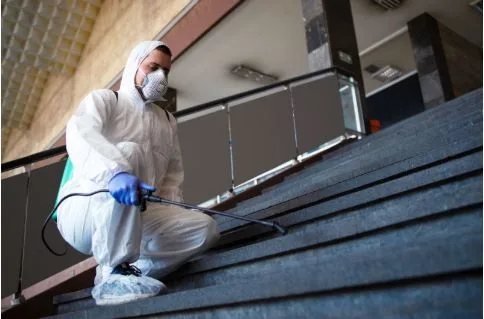Family Therapy in Addiction Recovery: Healing Together
Addiction can break trust and cause pain in families. Studies show that family therapy helps people heal together during recovery. This blog explains how family therapy supports healing, better communication, and stronger relationships.
Keep reading to learn simple steps your family can take to grow closer through recovery.
The Impact of Addiction on Families
After reading about the basics of recovery, you may wonder how substance abuse hurts families. Substance use often breaks trust between family members. Loved ones might feel confused, sad, or even angry as they watch someone struggle with addiction.
Stress grows in homes touched by substance abuse. Arguments happen more often and communication gets harder. Children can face trouble at school or withdraw from friends because of fear or shame.
Family dynamics tend to change; some people take on extra roles to cope while others avoid problems altogether.
Financial stress is common too. Money for bills, food, and rent sometimes goes toward drugs or alcohol instead. Support systems become strained and emotional healing slows without help from therapy, counseling or intervention programs.
Relapse risk rises if loved ones do not address these issues together in recovery sessions. Participating in a dedicated family program can provide the tools and guidance needed to rebuild healthy relationships and foster lasting recovery support. Families need tools to rebuild healthy relationships and promote resilience during rehabilitation and long-term support.
Key Benefits of Family Therapy in Addiction Recovery
Family therapy offers many benefits for those in recovery. It helps families rebuild trust and improve communication, creating a strong support system.
Rebuilding Trust and Communication
Substance abuse often damages trust and breaks down healthy communication. People may hide their actions, tell lies, or avoid talking honestly. In therapy sessions, families learn new skills to help build back faith in each other.
Counselors encourage everyone to speak openly and listen without judgment.
Simple tools such as “I feel” statements teach family members how to express feelings without blaming others. Clear rules for conversations stop anger from taking over talks. Over time, small steps like saying sorry and being honest can help restore trust within the family group.
Healing together becomes possible with practice and patience during recovery.
Addressing Harmful Family Dynamics
Old family patterns can make recovery harder. Unhealthy habits like blaming, secrecy, or denial often appear in homes touched by addiction. These harmful behaviors block healing and trust.
Family therapy helps each person see how their actions affect others. Counselors guide families to spot hurtful patterns and replace them with new ways to relate.
Therapists create a safe space for open talks about feelings and past hurts. Honest communication allows family members to express pain or frustration without judgment.
Together, families build support systems that help everyone heal and grow stronger during recovery.
Educating Families About Addiction
Families need to learn about addiction. Understanding the nature of substance abuse is essential for healing. Many families do not know how addiction affects their loved ones and themselves.
Educating them helps build empathy and support.
Workshops can teach families about the signs of addiction, treatment options, and coping strategies. Knowledge empowers families to create a supportive environment for recovery. They become better equipped to communicate and trust each other during this tough time.
Supporting Long-Term Recovery and Relapse Prevention
Support during recovery is essential for lasting change. Family therapy helps create a strong support system. It teaches family members how to avoid triggers and recognize signs of relapse.
Families learn healthy coping strategies together. This shared knowledge builds resilience among all members.
Therapy sessions encourage open discussions about feelings and fears. Open communication fosters trust, which is vital in recovery. Each family member plays a role in supporting one another.
By working together, families can maintain long-term recovery and prevent relapse effectively.
How Family Therapy Strengthens Relationships During Recovery
Family therapy helps build stronger connections. It encourages honest talks and shared goals within the family.
Promoting Accountability Within the Family Unit
Accountability is key in a family dealing with addiction. Each member must take responsibility for their actions. This helps rebuild trust and strengthens relationships. Open communication makes this easier.
Everyone should express their feelings clearly and listen to one another.
Setting healthy boundaries also promotes accountability. It shows respect for each person’s space and needs. Families can support the recovering member while holding them accountable for their choices.
Participating in therapy together fosters a sense of teamwork, making recovery a shared effort that benefits everyone involved.
Encouraging Healthy Boundaries
Building on accountability, families must also focus on establishing healthy boundaries. Healthy boundaries help family members know their limits and respect one another. This fosters a safe environment for open communication.
Setting clear rules can reduce misunderstandings and conflicts.
Families in therapy should support each person’s needs while encouraging independence. Each member must learn to express feelings without fear of judgment. By doing so, they create spaces for healing and connection.
Strong boundaries allow love and support to thrive during recovery from substance abuse.
Practical Tips for Families Participating in Therapy
Families should practice active listening. This means paying full attention when someone speaks and showing respect for their feelings. Open communication helps build strong connections and understanding among family members.
It is important to show forgiveness and have patience during this healing process.
Active Listening and Open Communication
Active listening helps families connect. It means truly hearing what others say. This skill builds trust and understanding. Open communication allows feelings to flow freely. Family members should speak without fear of judgment.
They can share their thoughts about addiction and recovery openly.
In therapy, everyone must participate. Each voice matters in the healing process. Practicing this type of communication creates a safe space for honesty. Families learn to express themselves better, which strengthens relationships during recovery.
Emotional healing often starts with these simple acts of listening and sharing together.
Practicing Forgiveness and Patience
Forgiveness is essential in family therapy. It allows family members to heal wounds caused by addiction. Holding onto anger can harm relationships. Patience helps families work through their emotions together.
Each person has their own pace of healing.
Understanding takes time. Supportive words and actions build trust again. Family members learn to listen without judgment. They practice empathy, which deepens connections. Together, they create a safe space for sharing feelings.
This strengthens the bond during recovery and encourages growth after setbacks.
Conclusion
Family therapy plays a key role in addiction recovery. It helps build trust and improve communication among family members. Support from loved ones makes the recovery process stronger.
Families learn to set healthy boundaries and hold each other accountable. Healing together brings hope for a brighter future.





